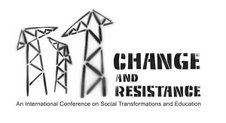Anna Bjuremark
Linköping University
A new political governance of University Institutions took place in Sweden in the middle of 1980´s. The “New Public Management” is made by means of talks about freedom and characterized by the removal of the locus of power, from the knowledge of practicing professionals to policymakers. Each university was given the opportunity to organize its own graduate education, whereas the goals were still in the hands of central governance. A contemporary discussion was whether research is sake of politics, if politics instead should provide conditions for the research on the researchers own terms, or if research is a question for the markets needs. Through persuasion and political technologies individuals are expected to be able to govern themselves in their own way, but at the same time, according to implicit intentions of state representatives. The measurable and quantifiable becomes highly valued. What is materialized may be seen as new governing discourses and related practices mutated from historical thinking in earlier days.
The point of departure in this paper is to reflect on how some of these conflicts are considered in policy texts. The purpose is to analyze and give perspectives with special attention to motives for governing, and how they are legitimized in policy documents. The paper also aims at an understanding of the significance of political representatives (within University Boards), the importance of “external” recruited chairpersons and “internal” academic members, as well as the strategies of knowledge production and the techniques and forms of influence. The analysis will try to make visible the constitutive power of governing discourses in policy documents over time, how they eventually mutate and find new form of possibilities.
Subscribe to:
Post Comments (Atom)

No comments:
Post a Comment